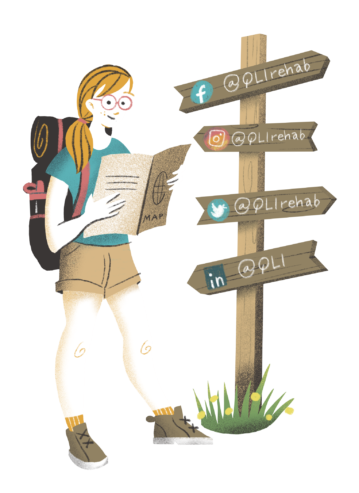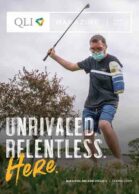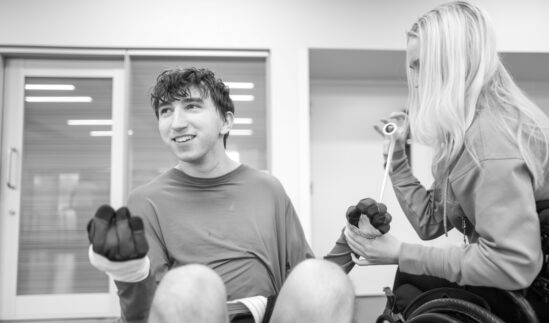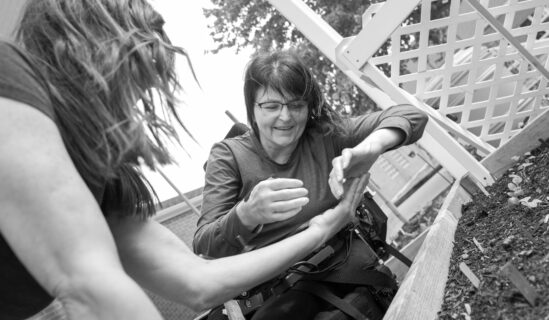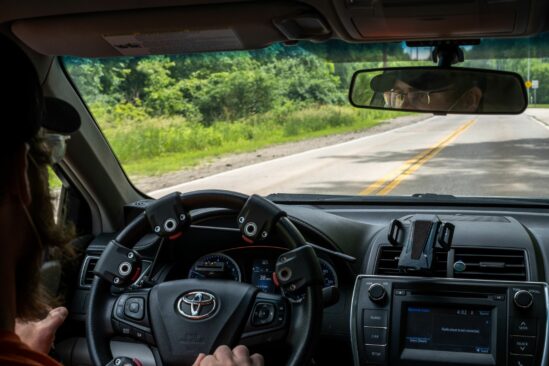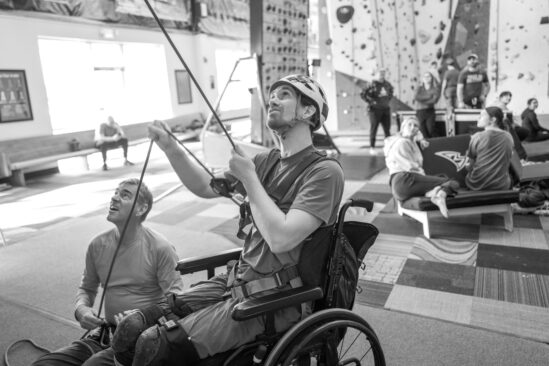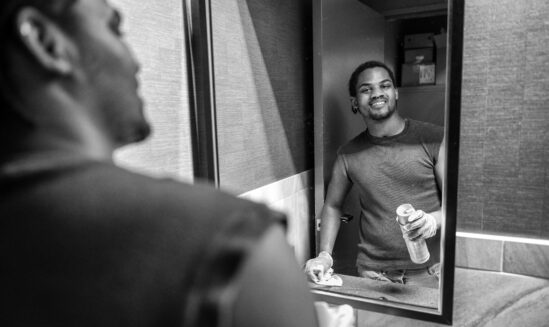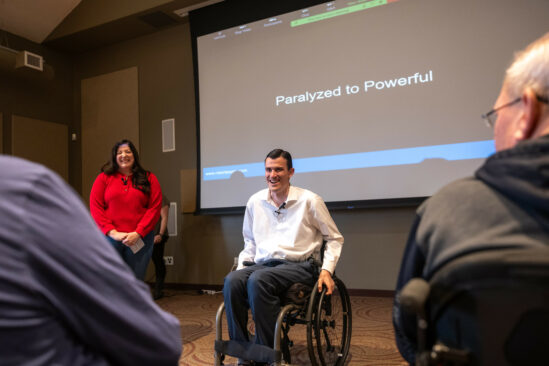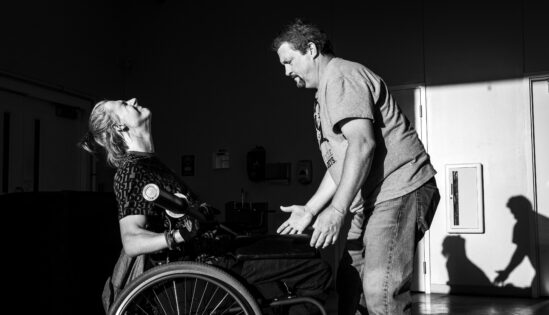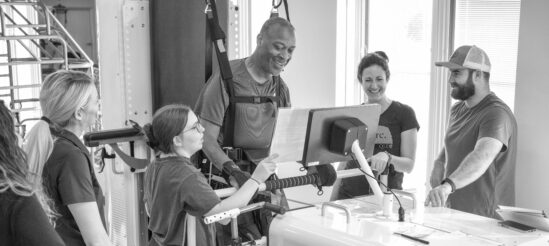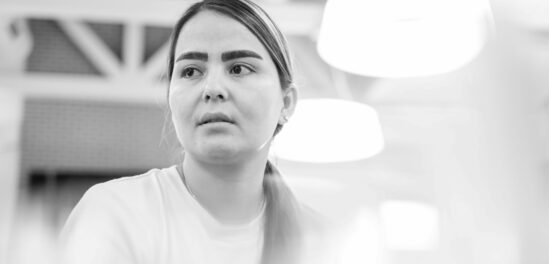We introduced Anna Connors to you in March as part of our Brain Injury Awareness Month campaign. At 17, Anna survived a terrifying automobile accident involving her vehicle and a semi truck. She was left with a traumatic brain injury, which affected her life in countless ways.
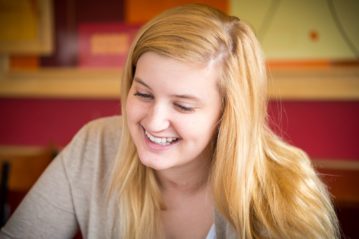 This summer, after years of recovery, Anna returns home to Ohio, where she’ll prepare for her first semester studying political science at Ohio State University. We sat down with Anna to learn more about her unique process of rehabilitation and how she has readied herself for an exciting future.
This summer, after years of recovery, Anna returns home to Ohio, where she’ll prepare for her first semester studying political science at Ohio State University. We sat down with Anna to learn more about her unique process of rehabilitation and how she has readied herself for an exciting future.
—
Anna, describe the effects of your injury. How did it make things harder for you on a day-to-day basis?
Lots of things were weird. I had—and still have—these memories of things I thought happened or were going on, but really weren’t. It was hard for me to meet new people and recognize them later. I had a really hard time keeping, like, a good filter. I would just say things—inappropriate things—all the time.
The accident happened at the end of my junior year, so when I finally went back to school I was a senior. Classwork was definitely harder. I used to just, you know, I’d have a big paper due and I’d just do it the night before and still get an A. After the injury, if I had a paper I’d have to mark out a week-and-a-half ahead. Each night I’d have to work because it just took so long to do everything. In my first math class afterward we had to take this test to see what we knew, and I thought, “Oh, I know all this stuff. I’m doing so great. I’m going to get done before everyone else.” And then I noticed everyone else was finishing when I still had half of the test left. That was hard, feeling behind.
You met with the clinical team at Craig Hospital at one point to evaluate your recovery, right?
It was the second semester of senior year. [Craig Hospital’s] Dr. Weintraub flew out to meet with me. And then the summer after senior year, they suggested I take a trip to Colorado for an evaluation. That was late-September. And that’s when they suggested that I come to QLI.
Did they give you a sense of what you’d be doing at QLI?
They told me it was “like college,” sort of, and that I’d be here for three to four months. And that scared the crap out of me.
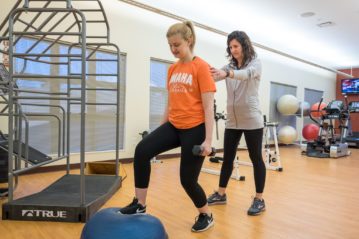 That three to four months in rehab is probably scary. There are probably a bunch of reasons why you felt uncertain about coming here.
That three to four months in rehab is probably scary. There are probably a bunch of reasons why you felt uncertain about coming here.
A lot of it was just being scared of leaving home. Half of me thought, “Oh, man, I wish I was like my friends. I wish I was off at college.” But as the months went on, I didn’t want to leave. I was scared to leave. I didn’t think I could do it.
But more rehab wasn’t really putting anything “on hold.” I spent most of my time just watching TV with my cat every day. Summer was fun, because I’d hang out with my friends and my little brother. But in August, all my friends left to go to college. So it was just me at home. I’d sleep all day. I’d watch TV. Eventually I started doing physical therapy, but I started having knee pain and stopped the activity, so during the day I was basically doing nothing. I was pretty bored. Some nights I’d just cry because I felt like I wasn’t doing anything. Wasn’t accomplishing anything. I felt like I didn’t have purpose.
All of that leads up to you getting to QLI. How did the QLI team describe what was ahead for you?
They asked me what my goals were. I wanted better stamina so I wouldn’t be so tired all the time. I wanted to get back to school because I just hadn’t done it in so long. And I wanted to be in better shape and have less physical pain in my legs, which had been a consistent problem. They took those goals and started to work on a plan from there.
What was the roadmap that QLI laid out for you?
At QLI, I work out every day. My legs don’t hurt as much as they did. I do school simulations most days—taking online classes and studying for placement tests. I’m always active, doing stuff all day long to build up endurance. Long days burn me out, so building that stamina is so important.
That’s mental stamina, too. I’ll be studying political science at Ohio State University, so to get prepared I took college classes online as part of my therapy.
Will you take a full schedule when you head back to school?
Yes.
How prepared do you feel for the college workload?
Obviously, I’m still a little nervous. Some days I feel like I’m going to fail. But mostly I’m excited. I need to make new friends—that’s what I’m really excited about. I’m looking to join the student government and I’ll be involved with clubs around campus, too.
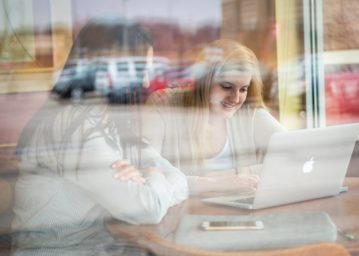 You recently had the chance to visit the Ohio State University with QLI therapists, didn’t you?
You recently had the chance to visit the Ohio State University with QLI therapists, didn’t you?
With QLI, I’ve been there twice. We made two home trips. They wanted to make sure I had counseling services available when I got home. And we went to the Office of Disability for the school, and we looked into transportation options when I’m on campus. We checked out the on-campus gym and the clubs that I can be involved in to stay active.
QLI has helped me get organized in other ways. I’m taking the college’s math placement test. I have a volunteer gig for the summer set up, and I have a summer job, too. So, all of this has turned into a busy summer.
What are your goals for being in school, for being home?
I want to get good grades, obviously. I want to be comfortable making new friends, joining social groups and clubs. I guess, like every person, I just want to take the chance to find myself. That’s where I’m at now. Going to school is going to be so helpful figuring out how to use my interests, doing what I want to do. I’m hopeful to do internships after that, start building my resume.
When you look back on yourself a year ago and compare that to where you are now, what’s the change you see?
I’m in a better place both physically and mentally. I’m not down and depressed, I’m not in pain, and I’m not worried about going to school. Eventually it got to the point where I was so sad that I needed to make a change. I needed to move forward somehow. I’m ready to get home and start my new life.
That’s a big part of what happens at QLI, I think. No one here likes to say you “can’t” do something. No one here tells you “oh, you probably can’t do this because of your injury.” Can’t be a court lawyer or work in politics. I’ve been told that by other doctors I’ve seen. But here they don’t think like that. We can do anything, and that mindset builds so much more confidence. We don’t talk about what I can’t do and just focus on how I will do something. And with QLI I get to be part of the community—be a part of things like the St. Patrick’s Day parade or just going out to eat. Doing things that feel normal.
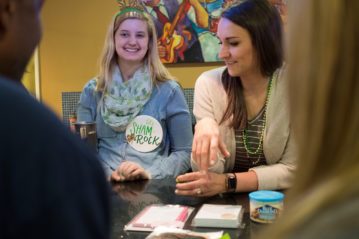 What would you say to someone who might be going through the same thing you are?
What would you say to someone who might be going through the same thing you are?
I’d probably say I know it seems like you’re at the worst point in your life. You probably are. But that means it can only get better. It might take a while—it’ll be two years for me and I’m still not 100% great—but it’ll be a lot better if you give it time.
Last question: what’s the first thing you’re doing when you get home?
Well, I always love my cats. But, really, the first day I get home, I’m probably going to go to sleep (laughs). I really like my bed. I’ll probably just take a good, long nap. I feel like I’ve earned it.


